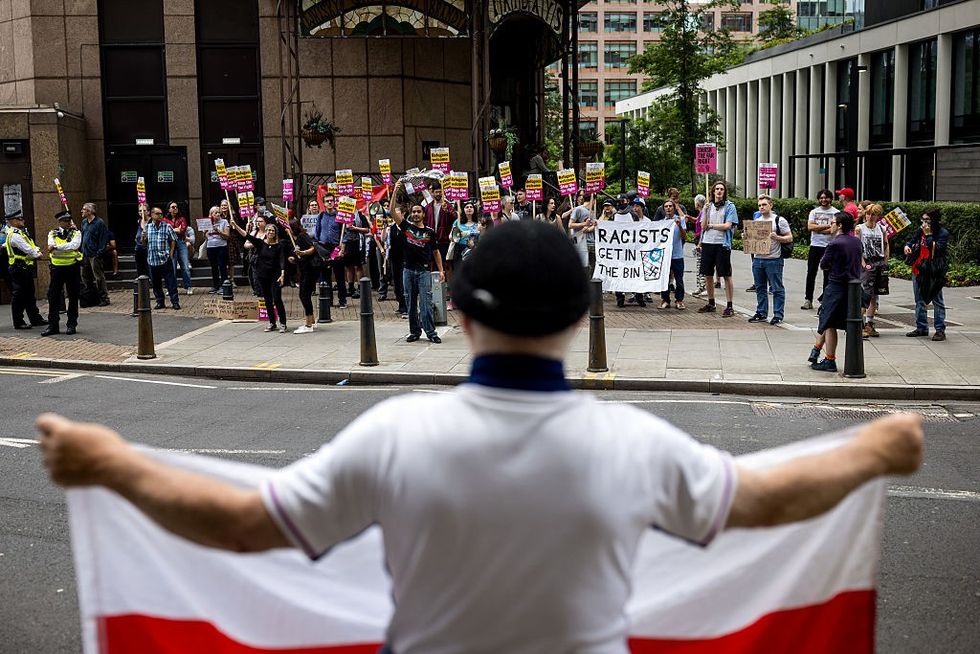A mural in India’s new parliament building has been a talking point since the inauguration of the structure last month.
At the centre of the controversy is a map in the mural depicting ancient India as one geographical entity which also includes today’s Pakistan, Bangladesh and Nepal.
While the mural has caught the imagination of some nationalists who talk of Akhand Bharat or undivided India, it has also ruffled the feathers of the South Asian country’s neighbours who have sought an explanation from New Delhi.
The Akhand Bharat concept refers to the undivided India that includes present-day Afghanistan, Pakistan, Bangladesh, Sri Lanka, Myanmar and Thailand.
India’s External Affairs Ministry spokesperson Arindam Bagchi said the map represented the ancient Ashoka Empire and symbolised “the idea of responsible and people-oriented governance that (King Ashoka) adopted and propagated.”
Ashoka was a Mauryan ruler of Magadha from circa 268 to 232 BCE and his empire extended from today’s Bangladesh in the east to Afghanistan in the west. He is regarded as one of the greatest emperors in the history of India, having brought a vast part of the Indian subcontinent under his rule.
Referring to the mural, Parliamentary Affairs Minister Pralhad Joshi tweeted: “The resolve is clear. Akhand Bharat.”
Pakistan made no secret of its unhappiness about statements of politicians of India’s ruling party about the map.
Its foreign office spokesperson Mumtaz Zahra Baloch said: “The gratuitous assertion of ‘Akhand Bharat’ is a manifestation of a revisionist and expansionist mindset that seeks to subjugate the identity and culture of not only India’s neighbouring countries but also its own religious minorities.”
The Kathmandu Post quoted Nepal’s opposition leader KP Sharma Oli as saying: “If a country like India – that sees itself as an ancient and strong country, and as a model of democracy – puts Nepali territories in its map and hangs the map in parliament, it cannot be called fair”.
A map in India’s new parliament building makes country's neighbours uneasy
The map in the artwork shows the ancient Ashoka Empire which stretched from today's Bangladesh to Afghanistan


















 A man holds an England flag aopposite protesters attending a rally organised by Stand Up To Racism outside the Britannia International Hotel on July 25, 2025 in London, England. (Photo by Jack Taylor/Getty Images)
A man holds an England flag aopposite protesters attending a rally organised by Stand Up To Racism outside the Britannia International Hotel on July 25, 2025 in London, England. (Photo by Jack Taylor/Getty Images)